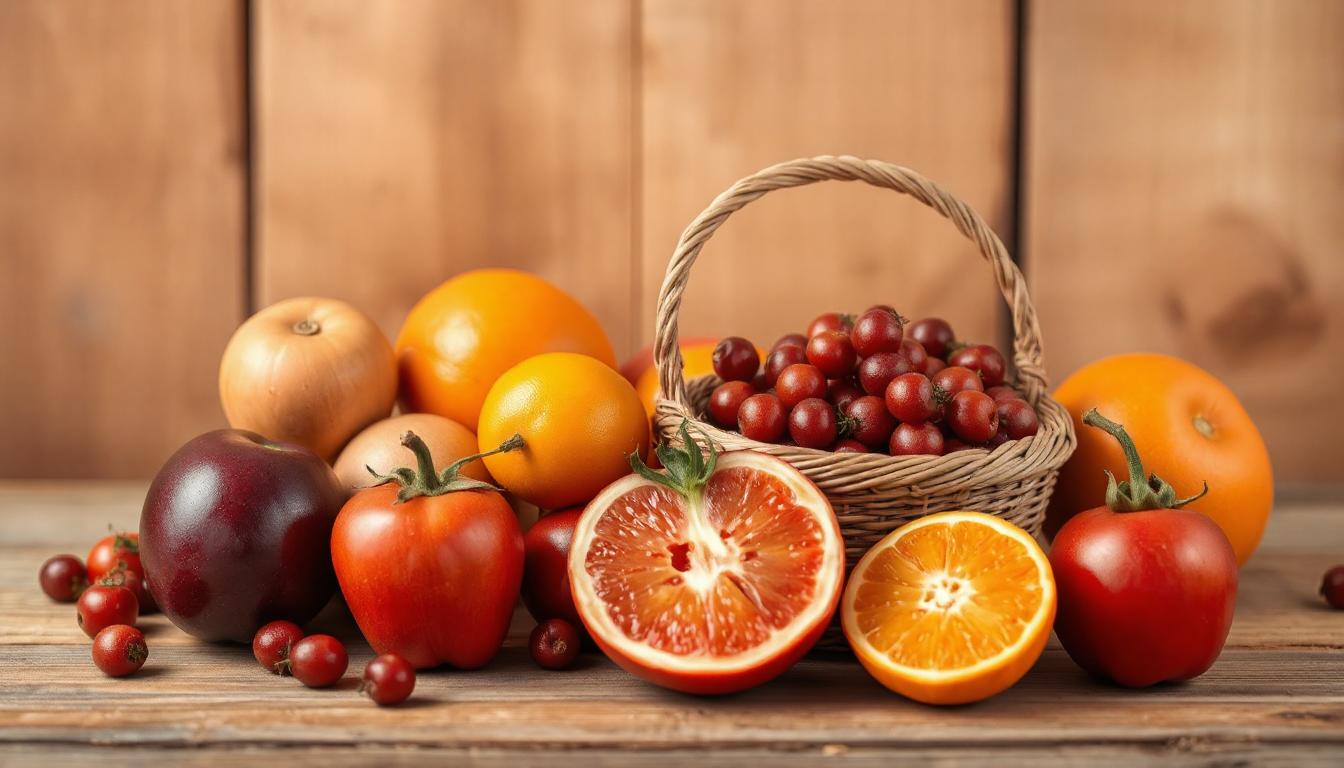10 Most Exported Fruits from Turkey to Europe: Export Processes and Insights
Your trusted partner for delivering high-quality fruits and vegetables to global markets with excellence and reliability!
10 Most Exported Fruits from Turkey to Europe: Export Processes and Insights
10 Most Exported Fruits from Turkey to Europe: Export Processes and Insights
Turkey is one of the world's most fertile agricultural hubs, known for its diverse fruit exports to Europe. The country’s strategic location, climatic diversity, and high-quality production make it a leader in the global fruit trade. These factors have contributed to the prominence of Turkish fruits in European markets, where demand continues to grow year by year. In this article, we will explore the top 10 fruits exported from Turkey to Europe, delving into the export processes, logistics, and key statistics that make this trade a thriving sector.
1. Cherries
Turkey is the world's largest producer of cherries, exporting over 80,000 tons annually to Europe. With its vibrant color, sweetness, and firmness, Turkish cherries are highly sought after, especially in Germany and the UK. The export process for cherries is meticulous, starting from selective harvesting to ensure only the best quality fruit is picked. Post-harvest, cherries are rapidly cooled to maintain their freshness and prevent spoilage. They are then carefully packed in temperature-controlled containers for shipment, ensuring they arrive in prime condition.
2. Citrus Fruits
Citrus fruits, including oranges, lemons, and mandarins, are a major export from Turkey, with an annual export volume exceeding 1.5 million tons. These fruits are especially popular in countries like Russia, Poland, and Ukraine, where their vibrant flavor and freshness are highly appreciated. The journey of citrus fruits from orchards to European tables involves rigorous quality checks, proper washing, and waxing to preserve their appeal. Coupled with efficient packing and refrigerated shipping, Turkish citrus fruits maintain their high quality and taste throughout the supply chain.
3. Grapes
Turkey’s seedless grapes, especially the Sultana variety, dominate European markets. Annual grape exports reach nearly 200,000 tons, with Italy, France, and the Netherlands being major buyers. The production process focuses on sustainable farming practices, ensuring grapes are grown without excessive use of chemicals. Once harvested, the grapes are sorted, graded, and packed with precision to avoid bruising. They are then transported using cold chain logistics, which preserves their natural sweetness and firmness.
4. Figs
Turkey is synonymous with premium quality figs, particularly the Bursa black figs. With over 50,000 tons of figs exported yearly, Germany, France, and Switzerland are the primary recipients. The fig export process involves careful handling, as this fruit is highly perishable. Exporters ensure figs are harvested at the peak of ripeness and stored in ideal conditions to maintain their texture and flavor. Proper drying techniques for varieties like dried figs also play a significant role in extending their shelf life.
5. Apples
Turkey produces a variety of apples, including Red Delicious and Golden Delicious, exporting approximately 100,000 tons annually to Europe. Turkish apples are known for their crisp texture and exceptional taste, making them a favorite among European consumers. To ensure they reach international markets in perfect condition, apples undergo thorough quality checks and are stored in controlled atmosphere (CA) facilities that regulate temperature and oxygen levels. This advanced technology extends their freshness and prevents premature ripening during transportation.
6. Pomegranates
Rich in antioxidants and flavor, Turkish pomegranates are highly valued in European markets. Annual exports exceed 120,000 tons, with the UK, Germany, and Sweden among the top importers. Exporters employ advanced cleaning and grading processes to ensure that each pomegranate meets strict quality standards. The fruits are then packed securely to prevent damage during shipping. Temperature-controlled transport ensures that the pomegranates retain their vibrant color and juicy interior, making them a favorite in both fresh and processed forms.
7. Peaches and Nectarines
With a sweet and juicy flavor, Turkish peaches and nectarines are popular in Europe. Over 90,000 tons are exported each year, particularly to Italy and Greece. These delicate fruits require special care during harvest and packaging. Exporters prioritize rapid cooling and gentle handling to maintain their texture and flavor. Modern logistics systems, including refrigerated transport, ensure that peaches and nectarines reach their destinations fresh and ready for consumption.
8. Apricots
Turkey is the global leader in apricot production, exporting over 300,000 tons of both fresh and dried apricots annually. The Malatya region is especially renowned for its apricots, which have a Protected Designation of Origin (PDO) status. The export process involves stringent quality checks to ensure that both fresh and dried apricots meet international standards. Fresh apricots are transported in cold storage, while dried apricots undergo careful drying and packaging to retain their nutritional value and flavor.
 9. Strawberries
9. Strawberries
Turkish strawberries, known for their vibrant color and sweetness, are increasingly popular in European countries such as Belgium and the Netherlands. Annual exports exceed 50,000 tons, reflecting their growing demand. The strawberry export process involves harvesting at the optimal stage of ripeness, followed by rapid cooling to lock in their freshness. These fruits are then packed in protective containers and shipped using cold chain logistics to ensure they arrive intact and flavorful.
10. Quinces
Turkey’s quinces are sought after for their unique taste and culinary versatility. Export volumes reach 40,000 tons annually, with Spain and Portugal as key buyers. The process of exporting quinces includes thorough grading and packaging to prevent bruising. Due to their fragility, swift and efficient logistics are critical for ensuring these fruits reach their destinations in excellent condition. Their distinct flavor makes them a valuable addition to European markets.
The Export Process
-
Quality Control: All fruits undergo rigorous quality checks to meet EU standards. This includes checks for size, color, and residue levels to ensure compliance with import regulations. Exporters work with local authorities and certification bodies to secure the necessary documentation.
-
Packaging: Fruits are packed in eco-friendly, robust materials to ensure they remain intact during transit. Packaging often includes ventilation to prevent moisture buildup, which can affect quality.
-
Cold Chain Logistics: Temperature-sensitive fruits like cherries, strawberries, and figs are shipped using refrigerated containers to maintain freshness. The cold chain process involves consistent monitoring to avoid temperature fluctuations.
-
Customs Clearance: Exporters work closely with customs officials to ensure compliance with export-import regulations. This step involves documentation checks, payment of duties, and adherence to international trade agreements.
-
Distribution: Upon arrival, fruits are distributed to wholesalers, supermarkets, and retailers across Europe, ensuring they reach consumers as quickly as possible.
Key Statistics on Turkey’s Fruit Exports
-
Turkey’s fruit exports to Europe account for over $2.5 billion annually.
-
The top five importing countries are Germany, the UK, the Netherlands, Italy, and France.
-
Fresh fruit exports represent 20% of Turkey’s total agricultural exports.
-
The share of organic fruit exports has been increasing, reflecting a global trend toward healthier and sustainable food options.
Why Turkish Fruits are in High Demand
-
Superior Quality: Turkish fruits are known for their taste, color, and texture, which are highly appreciated in Europe.
-
Sustainable Practices: Many producers adopt sustainable and organic farming practices, meeting the preferences of environmentally conscious consumers.
-
Cost-Effectiveness: Competitive pricing makes Turkish fruits an attractive choice for European buyers, offering high quality at reasonable costs.
-
Efficient Logistics: Advanced logistics networks, including cold chain systems, ensure timely delivery without compromising quality.
Future of Turkish Fruit Exports
With growing demand for fresh and exotic fruits, Turkey is poised to expand its presence in European markets. Investments in technology, logistics, and sustainability are expected to boost the country’s competitiveness further. Initiatives to promote Turkish fruits globally, along with enhanced trade agreements, will likely open new opportunities for exporters.
Conclusion
Turkey’s diverse range of fruits, from cherries to apricots, plays a vital role in meeting Europe’s fruit demand. With meticulous processes, sustainable practices, and high standards, Turkish exporters ensure these fruits reach global markets in pristine condition. As the industry continues to grow, Turkey remains a key player in the global fruit trade, setting benchmarks for quality and reliability.
